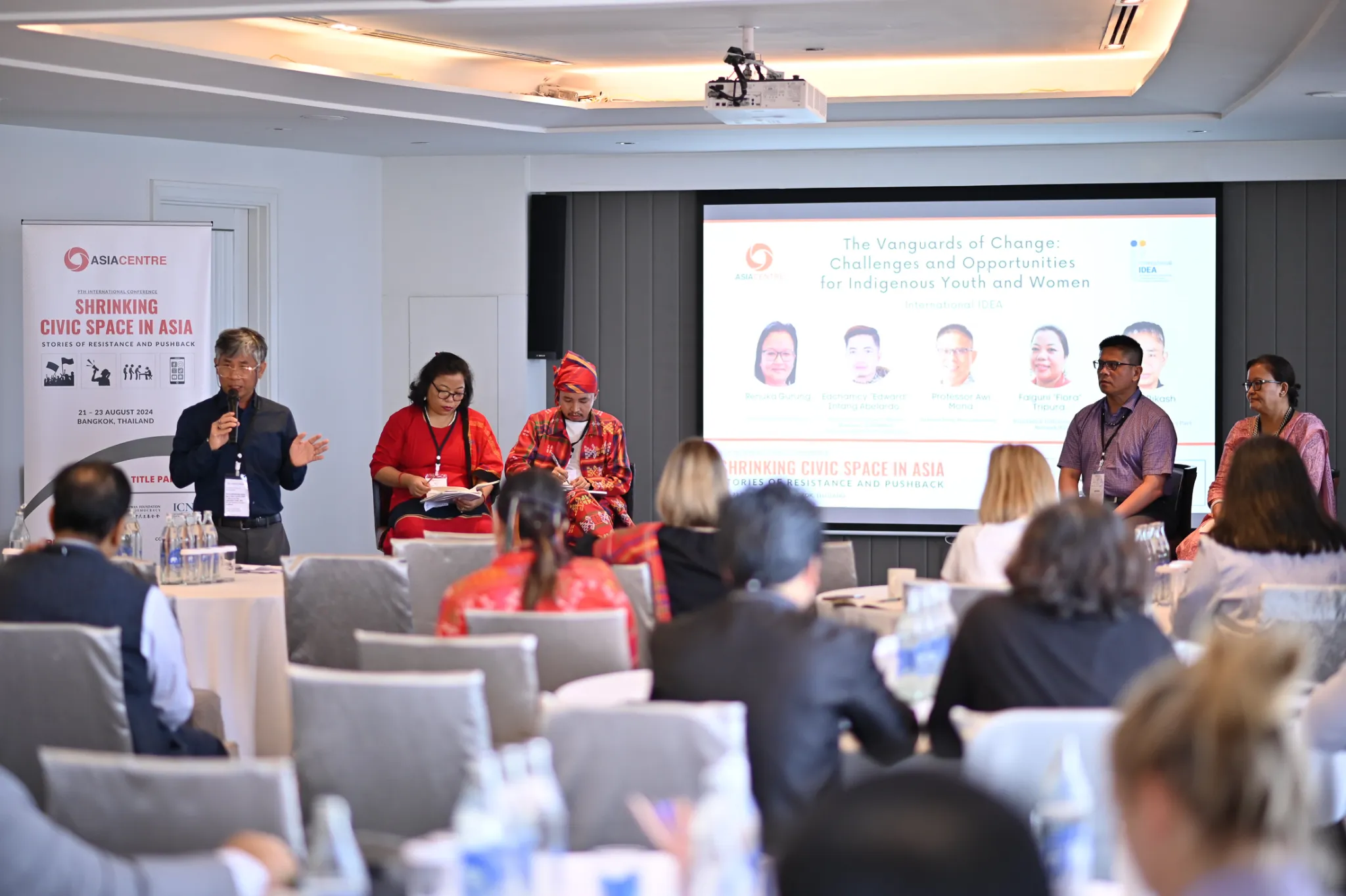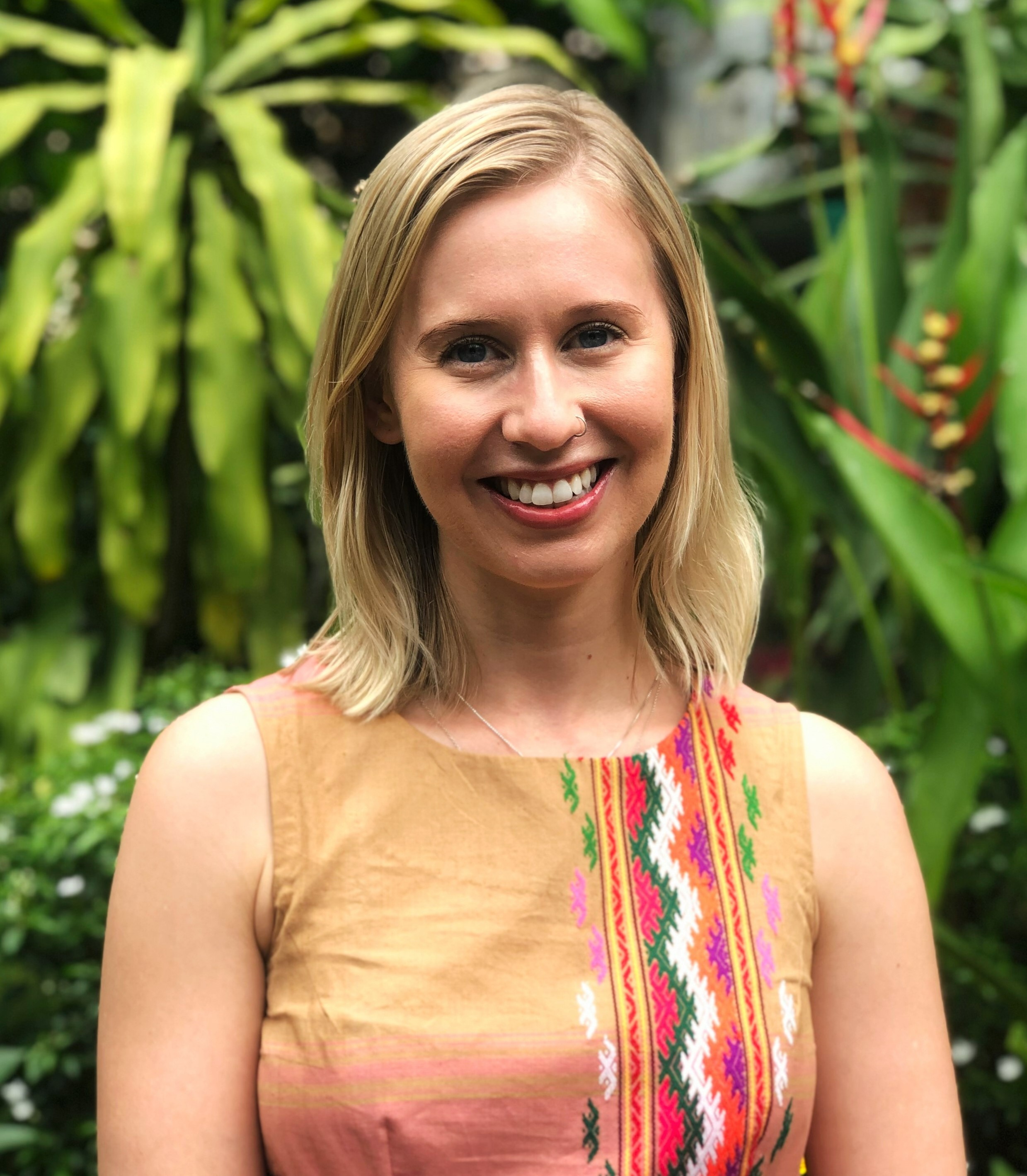Pushing Back: Indigenous Advocacy in a Time of Shrinking Civil Space

International IDEA was pleased to support the tenth panel, “The Vanguards of Change: Challenges and Opportunities for Indigenous Youth and Women” at the Asia Centre’s 9th International Conference in Bangkok on 23 August 2024. Convened around the topic, “Shrinking Civil Space in Asia: Stories of Resistance and Pushback”, the panel featured five insightful researchers and advocates from the region.
By international standards such as the United Nations Declaration on the Rights of Indigenous Peoples (UNDRIP) and various national legal frameworks, Indigenous peoples still struggle for self-determination, cultural preservation, and rights to their lands, territories, and resources. The shrinking democratic and civic spaces further complicate these efforts, especially for Indigenous youth and women, who are at the forefront of advocating for transformative changes to ensure their rights.
The session, which was moderated by Charu Bikash Tripura from Indigenous People’s Pact (AIPP), featured presentations by Renuka Gurung of International IDEA Nepal, Edchamcy “Edward” Abelardo of Bangsamoro Autonomous Region in Muslim Mindanao (BARMM) & International IDEA IP Champions, Professor Awi Mona of National Dong Hwa University and Falguni “Flora” Tripura of Bangladesh Indigenous Women’s Network (BIWN).
Kicking off the discussion, Charu Bikash Tripura noted that the “rights of Indigenous Peoples have still not been ratified in many parts of Asia,” referring to the United Nations Declaration on the Rights of Indigenous Peoples (UNDRIP). While the Declaration itself does not require ratification, Tripura highlighted that few countries in the region have taken steps to fully protect IP rights in their respective legal systems.
Speaking to the specific context of the BARMM, Abelardo said that the current political representation system in fact “marginalises” and limits the participation of IPs. While the Bangsamoro Organic Law provides for two reserved seats for IPs in the Bangsamoro Parliament, many IPs believe that this is insufficient to represent the diverse and numerous Indigenous communities effectively. They would be unable influence decision making through votes in the parliament. Abelardo also spoke about violence – often deadly – against Indigenous advocates from his community.
Taking the platform to share insights from Bangladesh, Falguni Tripura reminded the audience that her country is home to more than 54 Indigenous groups – a number she believes is in fact higher, due to insufficient counting and census practices. While representing more than two percent of the national population, the government of Bangladesh does not legally recognise them as Indigenous Peoples but as “small ethnic minorities”. She also raised the issue of lack of access to the justice system – especially for women – due to stationed police often not speaking the local language. Speaking to funding groups and donors specifically, she called for international climate funding to be earmarked for Indigenous People exclusively as her communities “cannot access these funds through the government.”
Albeit with a smaller total population, two percent of people in Taiwan are also Indigenous. Professor Awi Mona illustrated that despite having, on paper, the greatest protections and recognition of IPs in the region, in fact Indigenous People’s involvement and representation is constrained or “locked in a box [you] can’t get out of.”
Mona also identified geographic challenges for IPs who have moved from their home communities to cities for employment, noting difficulties accessing voting for their local constituencies.
As an International IDEA staffer from the Nepal office, Renuka Gurung has a unique insight into both her country’s, and her region’s, Indigenous context.
She noted that across Asia democratic and civic spaces for citizens and civil society organisations (CSOs) are indeed shrinking, and Nepal is no exception. In South Asia, increasingly restrictive regulatory and institutional frameworks have hindered the ability of citizens, Indigenous Peoples (IPs), and CSOs to effectively use civic spaces for organising and participating in decision-making processes that directly impact their communities.
In Nepal, IPs make up 35% of the population, with 60 groups officially recognised by the government and 19 more identified in the 2021 census but awaiting formal recognition. However, the ability of CSOs to advocate for the rights of IPs and other marginalised communities is compromised by some key challenges. These include a lack of vibrant CSOs focused on Indigenous issues, insufficient capacity for constructive engagement with policymakers, and an entrenched power structure within the government. She pointed to government sensitivity to criticism and disagreements over state-led narratives. The lack of awareness about laws and policies affecting IPs and the low representation of women, youth, and IPs in policy-making bodies and state mechanisms exacerbates these issues, in her view.
While these issues are no doubt complex and the civil space is indeed negatively contributed to engagement and advocacy, all panellists spoke of the commitment of their communities to improving engagement and outcomes for their people. Awi Mona issued a call to his fellow IPs directly: to unite around their shared goals and share learnings and strategies across Asia and the Pacific.
Click here to learn more about our work on inclusive democratic processes.




